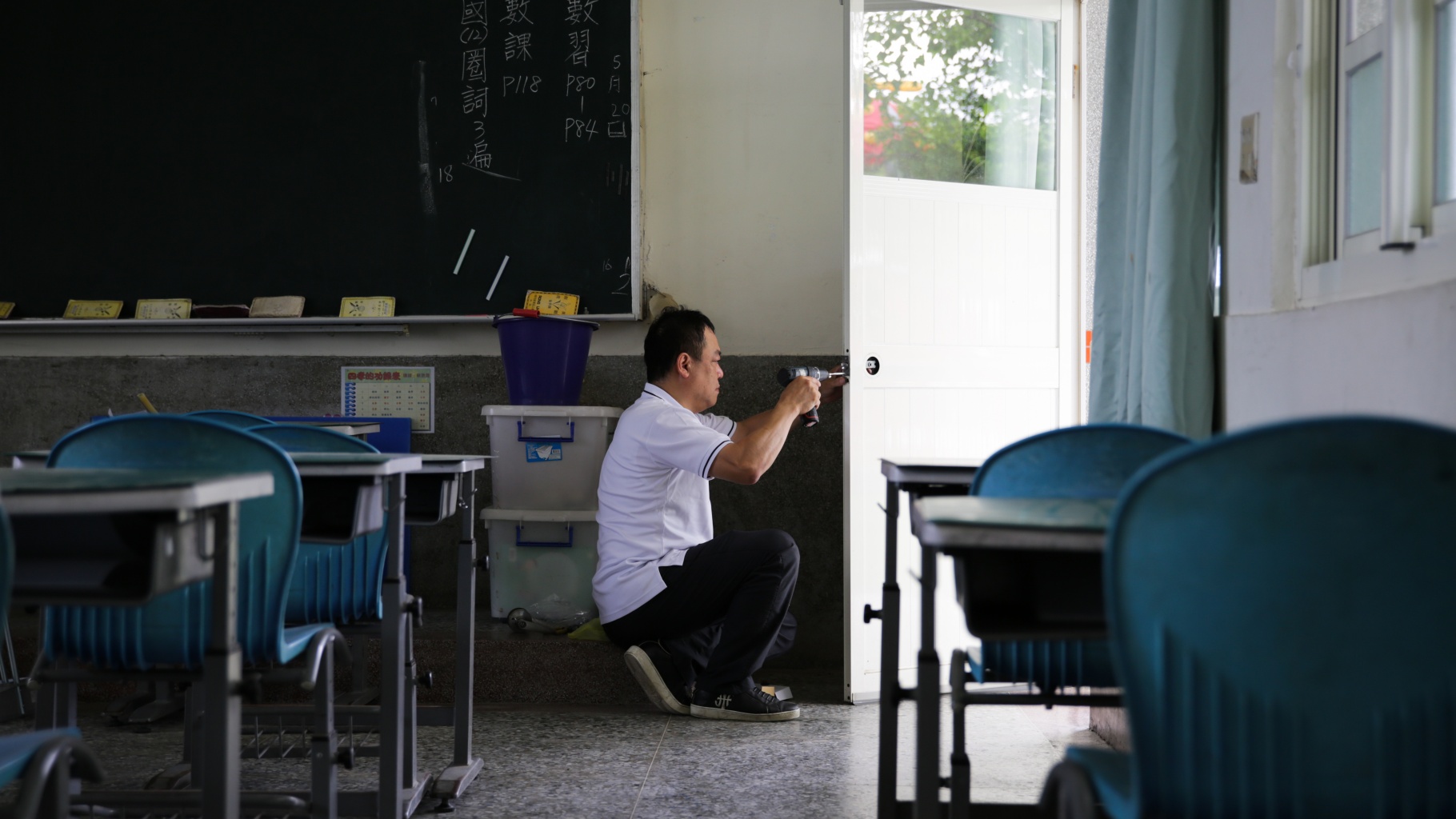Air Pollution Prevention and Control
Degree of conformity with emission standards of stationary pollution source operating permit Compliant
From an environmental management perspective, we have stopped the use of toxic chemicals since 2011, and acquired permits based on air, water, and waste-related laws and regulations; and also controlled the pollution discharge to conform with the environmental protection standards.
In order to slow down the impact of climate change under global warming, we worked to strive for a perfect balance between business development and environmental protection. At the same time, we passed the ISO 14001 environment management system certification and proposed the following commitments.
Degree of conformity with emission standards of stationary pollution source operating permit Compliant
Power saving rate of the year: 1.09%
Increase water reuse: 5.3%
Commission an independent verification by AFNOR
TTaiwan Fu Hsing monitors its energy usage annually and continues to optimize its efficiency. Energy consumption consists of electricity, natural gas and diesel fuel, and in 2023, electricity consumption was 46,942,560 megajoules, an increase of 1% over last year. However, with the implementation of energy-saving programs in the plants and the replacement of inefficient equipment, the reported electricity saving rate for the year was 1.05% in accordance with the Energy Administration Act, which was better than the government's requirement of 1%. Natural gas consumption was 196,273 megajoules, which is in line with the environmentally approved amount (91,800 m3/year, equivalent to 3,304,800 megajoules/year). Diesel consumption was 375,726 MJ, a significant increase over the previous year due to the increased frequency of use of diesel in company vehicles. The 2023 annual energy consumption was 47,514.559 GJ.
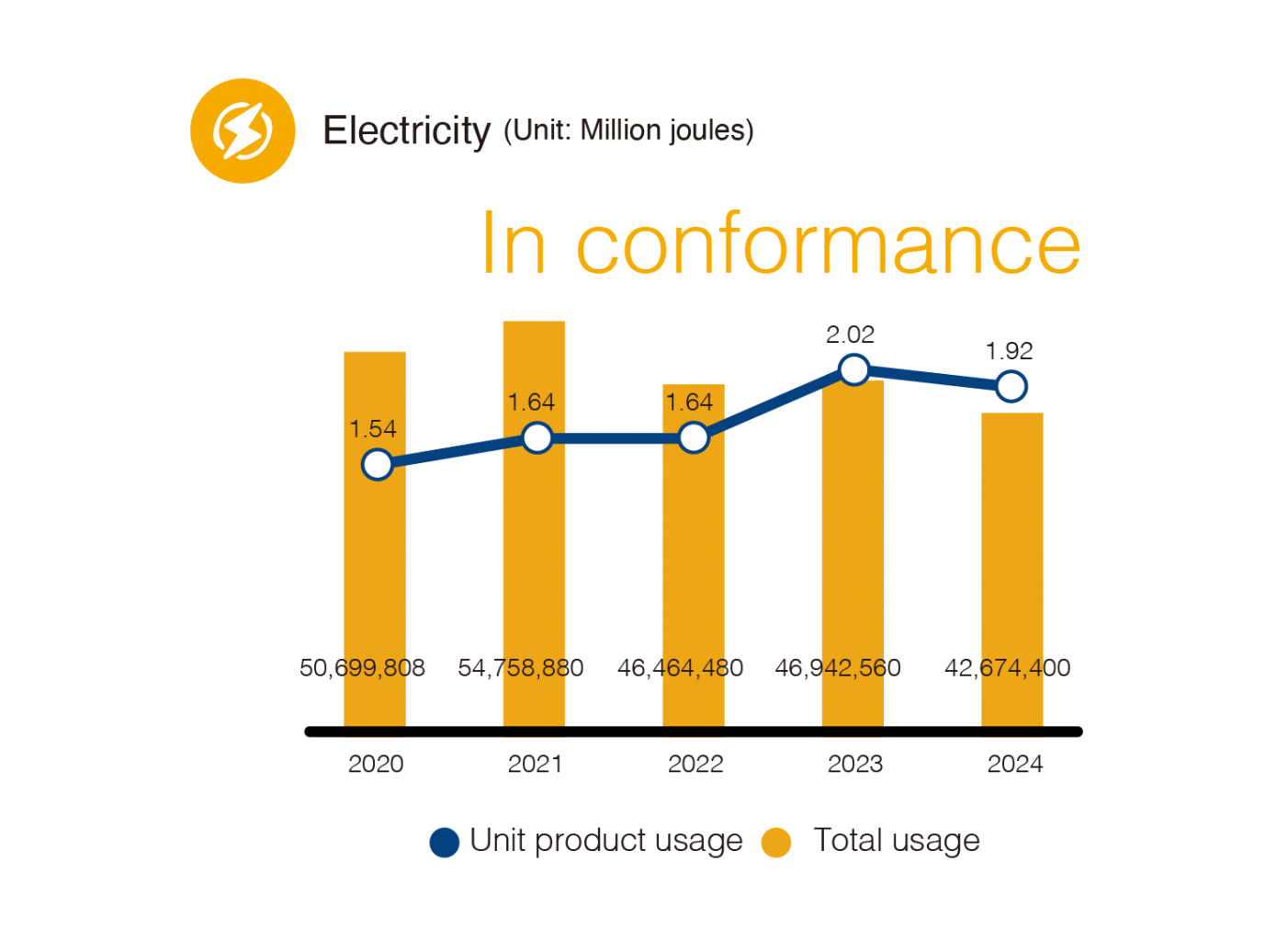
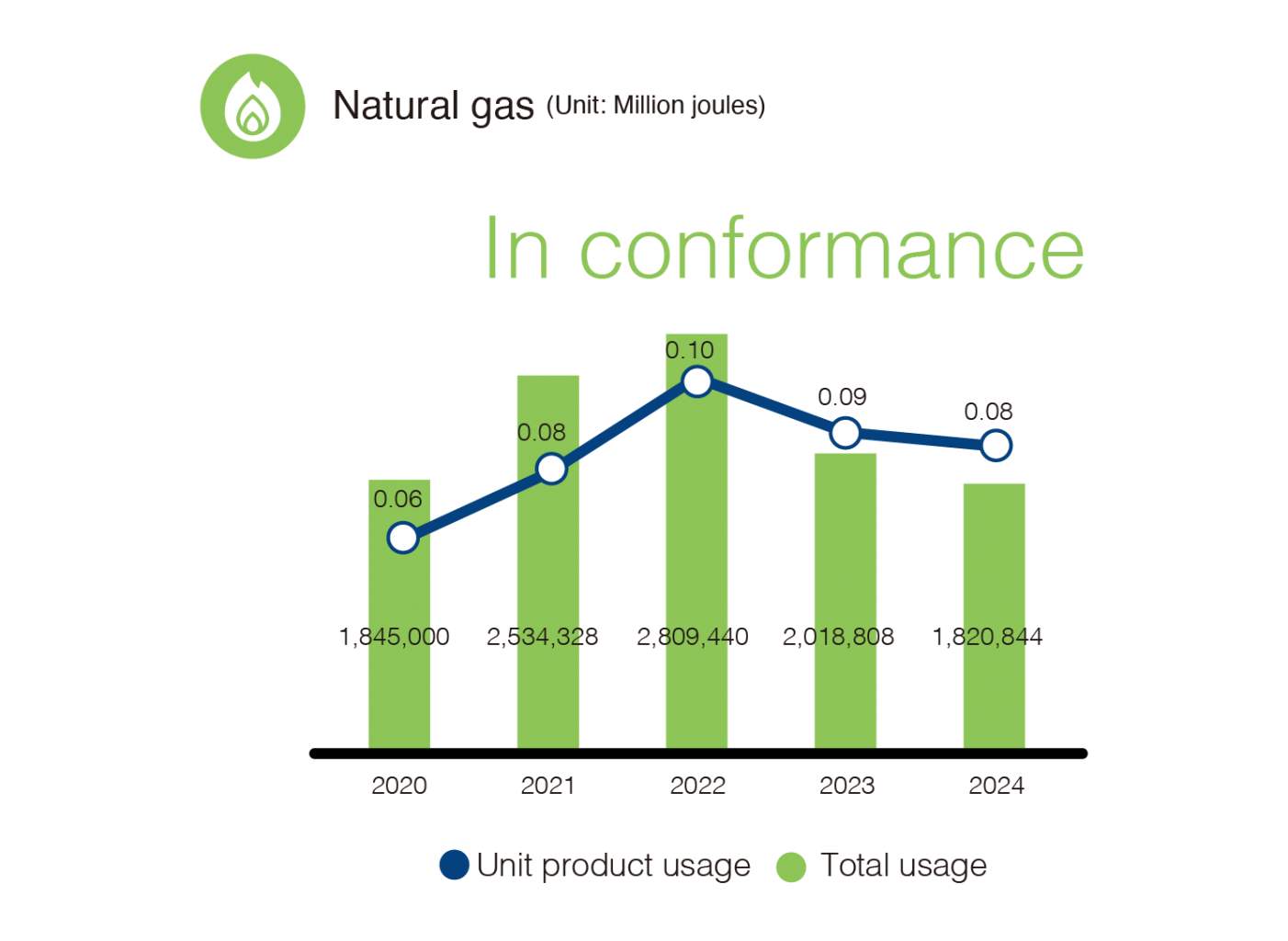
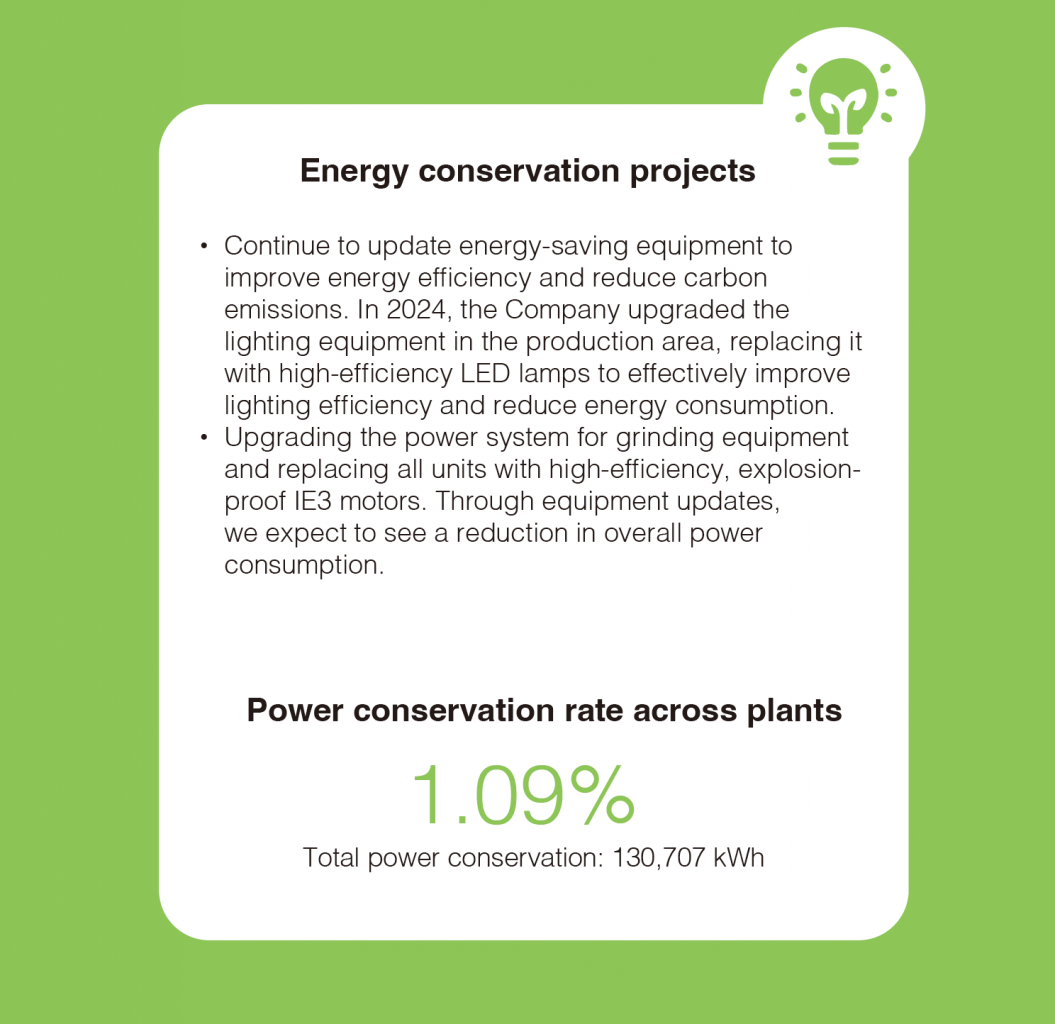
Taiwan Fu Hsing duly implements strategies to reduce resource consumption and continues to enforce energy and carbon reduction measures. The projects executed in 2024 mainly revolved around equipment improvement, and the outcomes were as follows.
*With regards to the purchase of green power, the "Regulations for the Management of Setting up Renewable Energy Power Generation Equipment of Power Users above a Certain Contract Capacity" requires all electricity users with more than 5,000 kW of contracted capacity to install renewable energy equipment, and given Taiwan Fu Hsing's contracted capacity of 3,205 kW, there has been no need to set up renewable energy equipment.
Taiwan Fu Hsing applies stringent control over particulate matters, nitrogen oxides (NOx), sulfur oxides (SOx), and volatile organic compounds (VOC). All emission data was calculated in accordance with the Environmental Protection Administration's "SOx and NOx Emission Coefficient and Efficiency for Reporting of Air Pollution Control Charges by Public and Private Stationary Pollution Sources" after taking into consideration the production procedures and pollution sources associated with the industry. A third-party testing company has been engaged to conduct regular tests on whether the emissions conform with standards. Air pollutants discharged in 2024 were entirely below the government's emission standards.
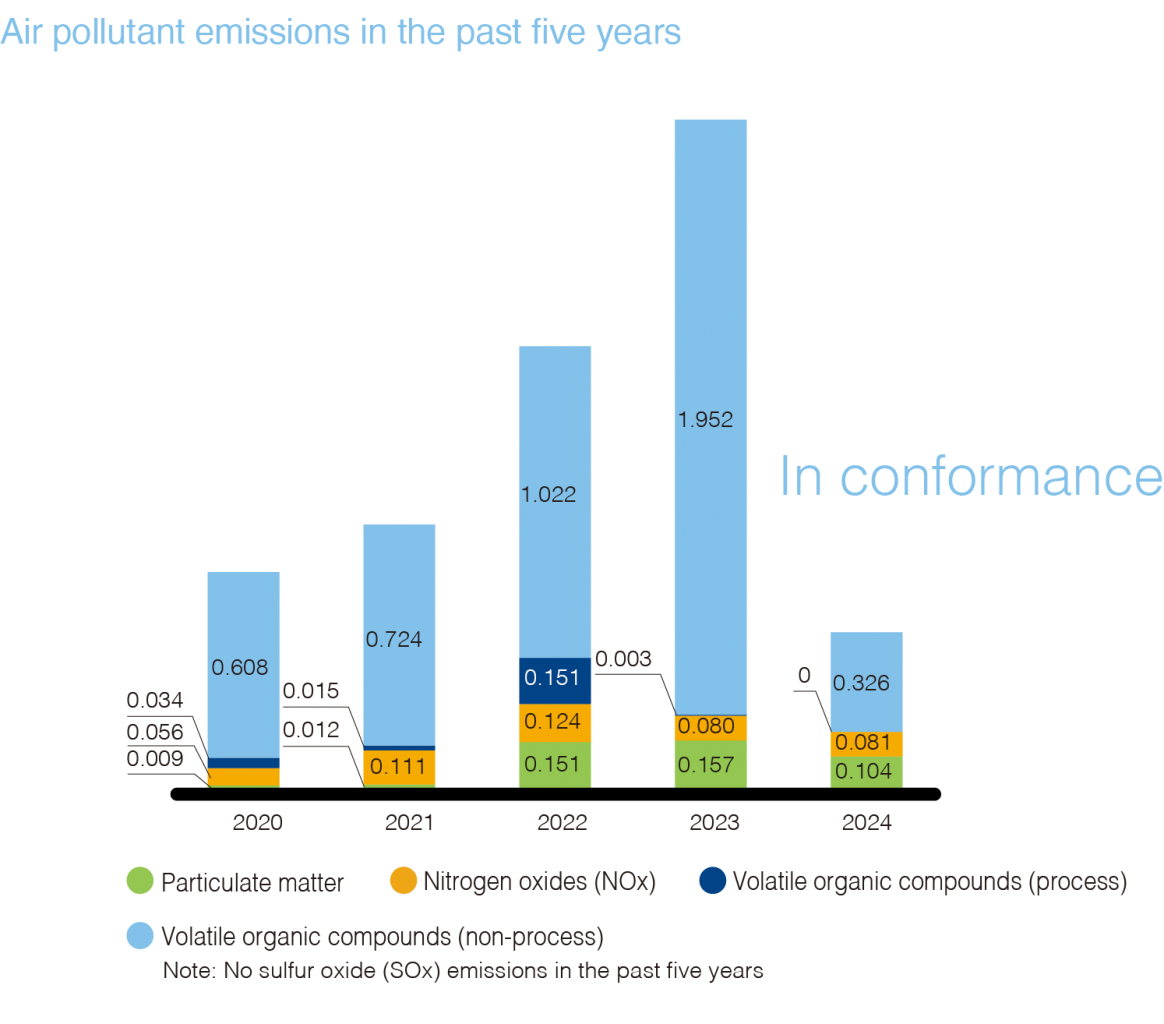
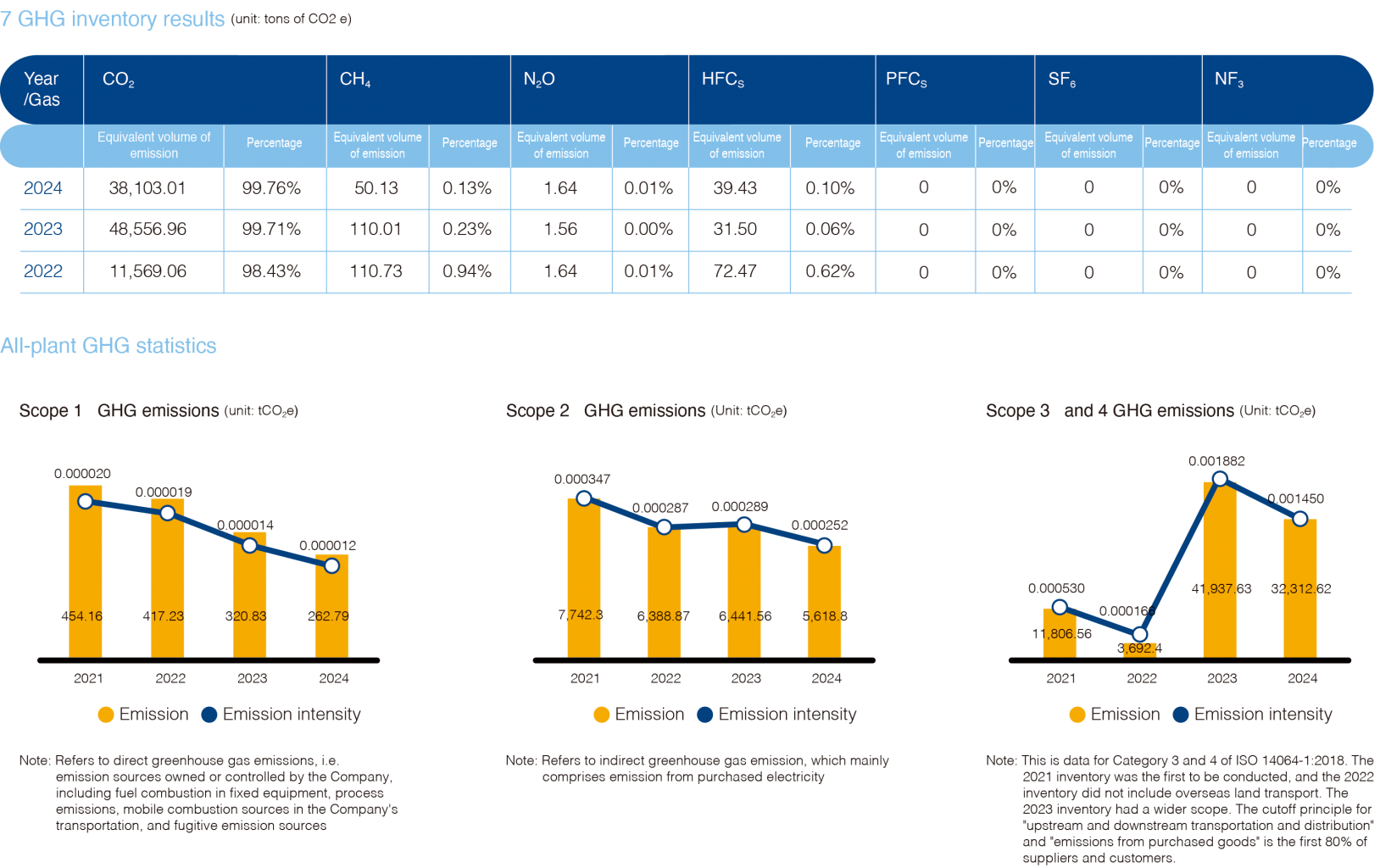
Taiwan Fu Hsing cares for the water resource in all locations where production activities take place. We have set goals to progressively reduce the volume of water used per unit of product produced. When making plans to draw water resources, we take into consideration the government's policies and the Company's growth requirements, and allocate water resources both rationally and efficiently to minimize wastage.
The total water consumption in 2024 was 49,029 tons, meeting the environmental protection approval volume 73,000 tons. In addition, we promoted water conservation projects, implemented the recycling of process cleaning water, and RO wastewater recycling and reuse of 36 water dispensers. In 2024, the total water recycled in the entire plant reached 2,742 tons, exceeding the set target value.
Climate change exacerbates the crisis of water resource instability, making water resource management a top priority for businesses. In the future, we will continue to promote water-saving measures and the research and development and improvement of water recycling process.
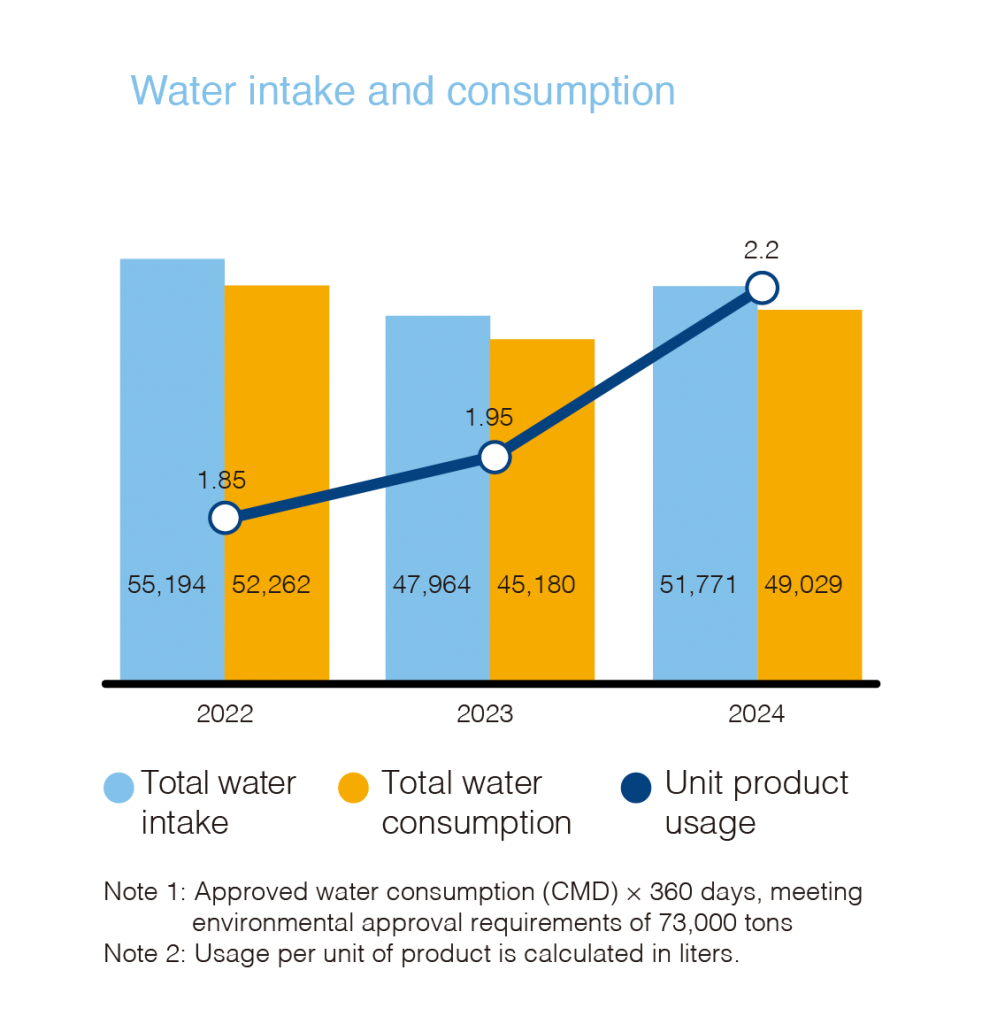
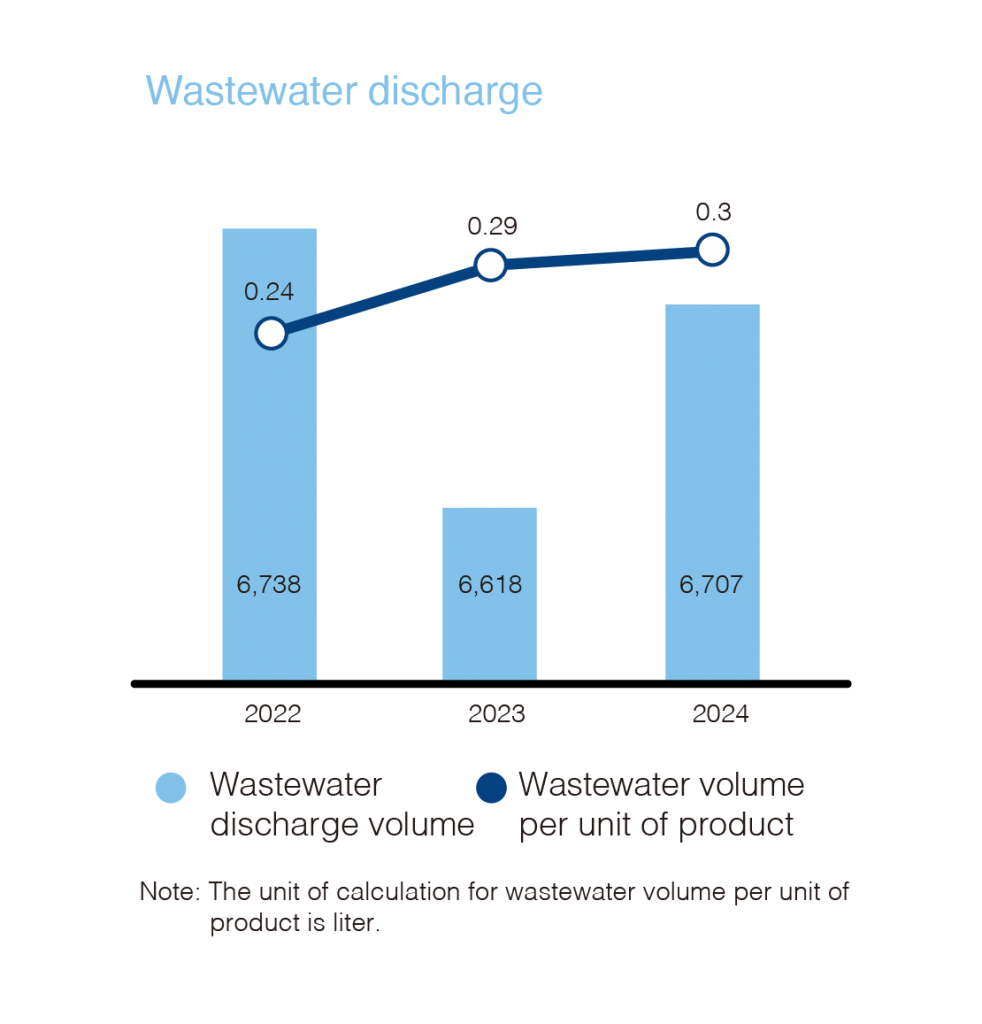
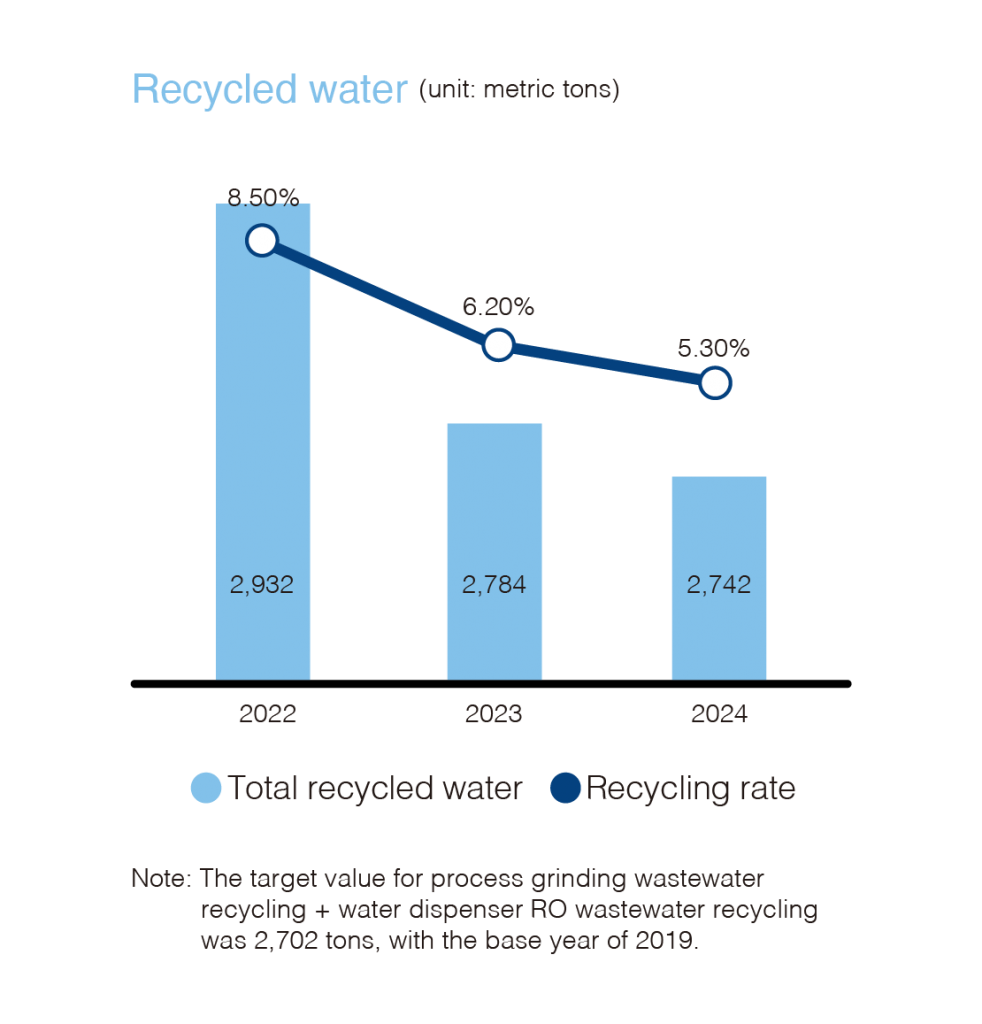
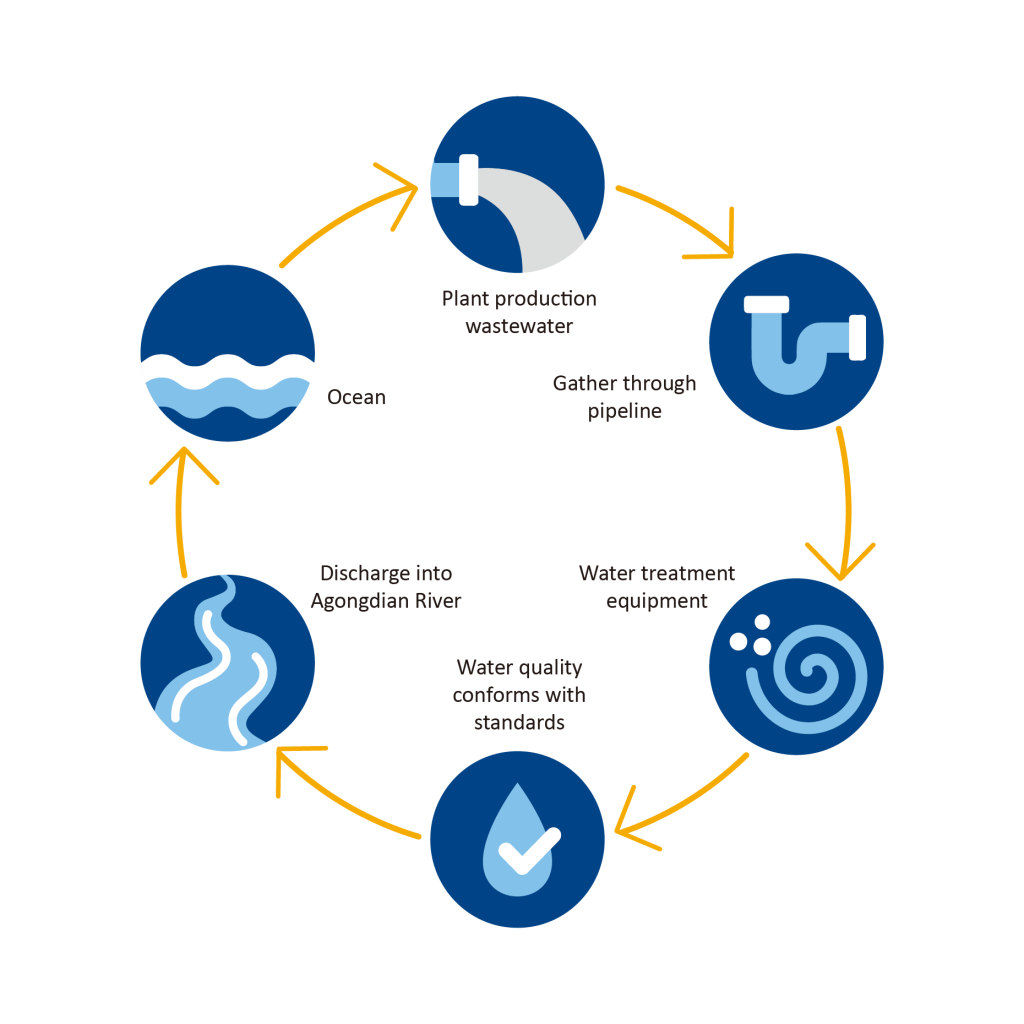
Production wastewater is collected through pipelines and directed to water treatment equipment, where it is treated the standard that complies with legal requirements before being discharged into Agongdian River, which ultimately ends up in the ocean. During this time, the operator monitors and records changes in the quality and volume of wastewater, and takes appropriate responses to abnormal occurrence. The Company engages third parties to test wastewater quality every six months, and in doing so ensures that production activities do not affect the environment. All tests conducted in 2024 showed the water quality having conformed with legal standards.
The Company makes half-yearly reports according to "Water Pollution Control Measures and Test Reporting Management Regulations." In 2024, the factories discharged 6,707 cubic meters of wastewater in total, which was within the level approved by the environmental protection authority (13,177 cubic meters/year).
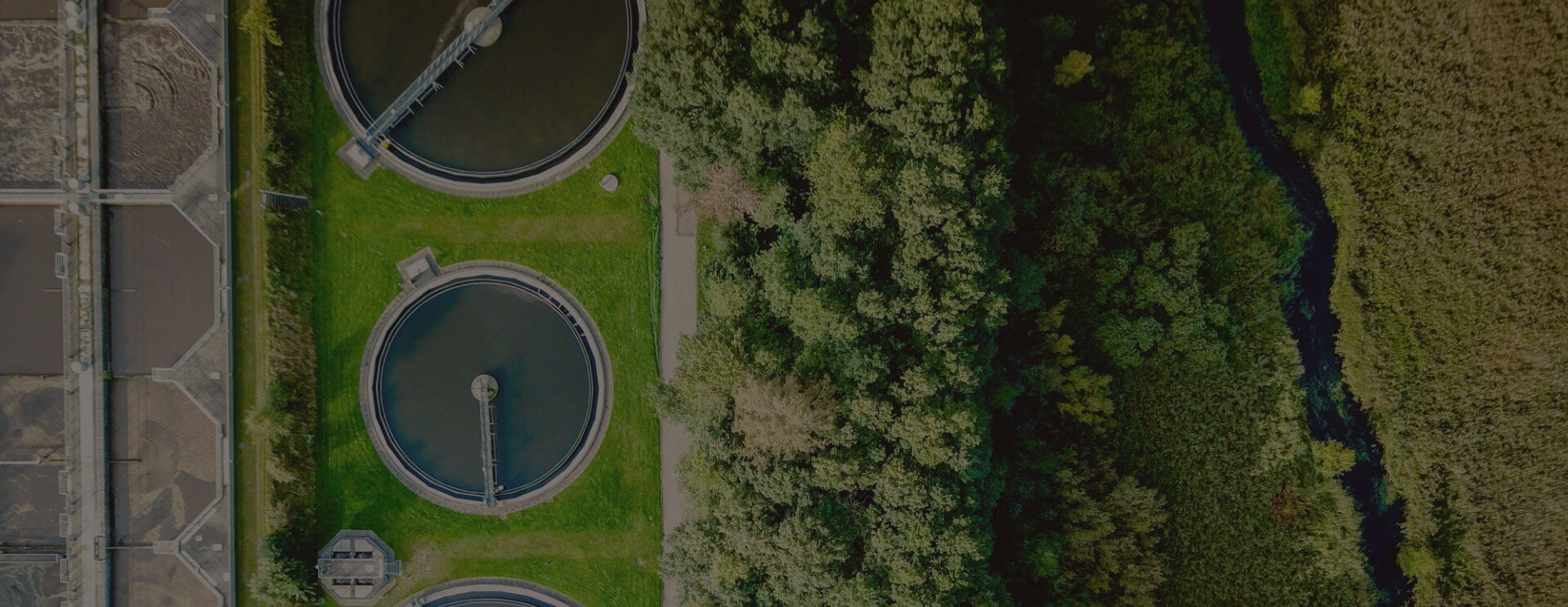
| Item |
Result
first half of the year / second half of the year
|
Standard in Current Laws and Regulations | Compliance | |
|---|---|---|---|---|
| water temperature(°C) | 31.1 | 30.1 | 38 | In conformance |
| PH | 7.1 | 7.2 | 6.0~9.0 | |
| SS (mg/L) | 4.8 | ND | 30 | |
| COD (mg/L) | 42.1 | 11.7 | 100 | |
| Oil (mg/L) | ND | ND | 10 | |
"Reduction and recycling" are the two main waste management approaches of Taiwan Fu Hsing. By reducing waste at the source and recycling/reusing the waste produced, the Company is able to minimize harm to the environment while at the same time reduce waste treatment costs. In 2024, 94.72% of the factory waste was recycled, and the remaining 5.28% was entrusted to licensed contractors for removal and disposal based on characteristics of the waste.


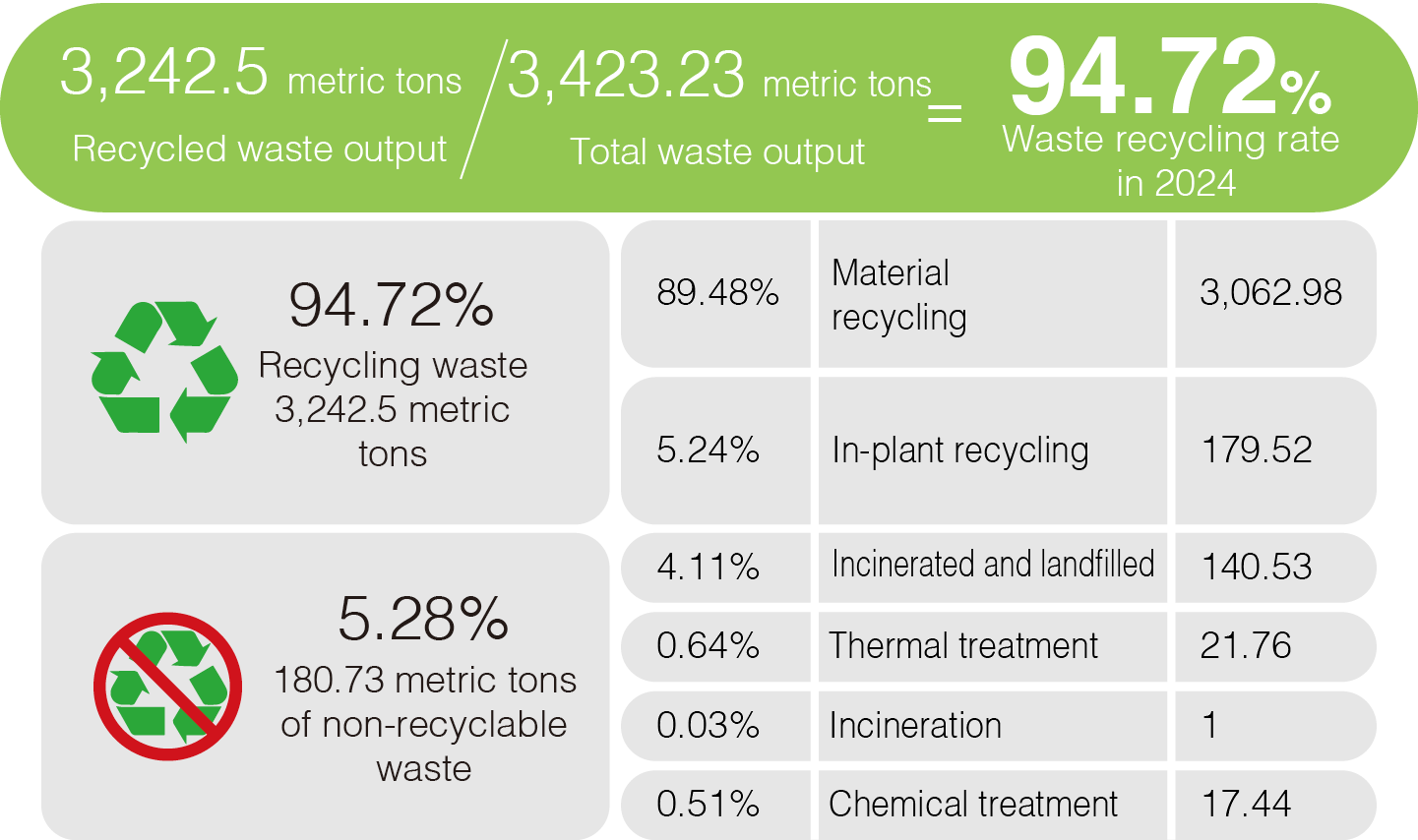
While placing the same value on environmental protection and industrial development, we not only take our corporate social responsibility seriously, but also engage our employees in environmental protection activities.
